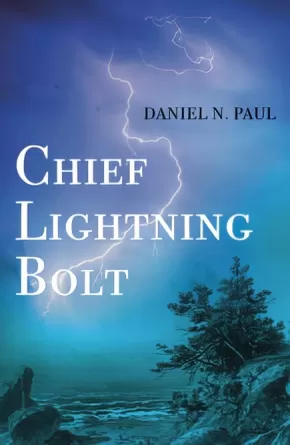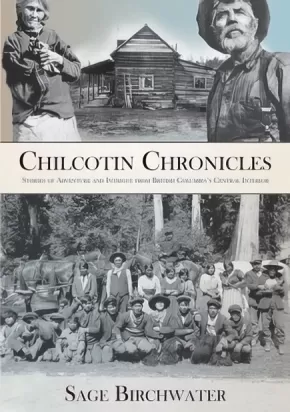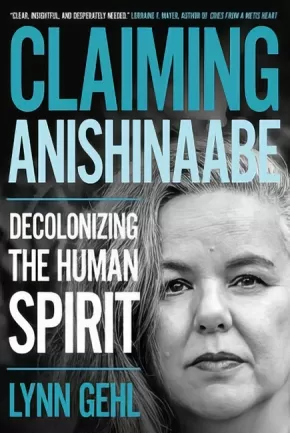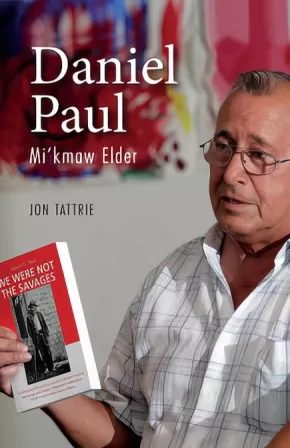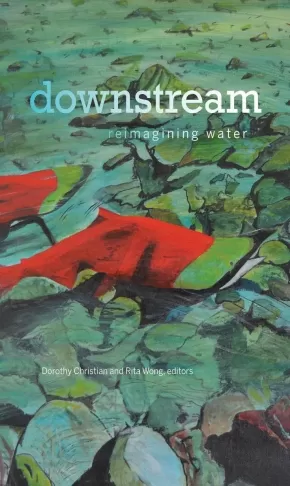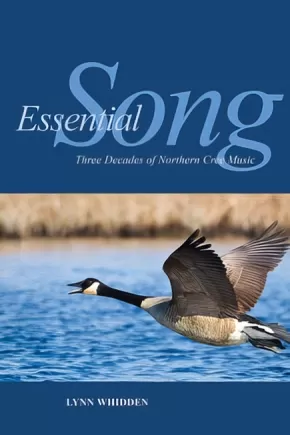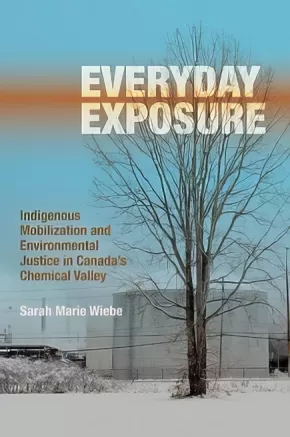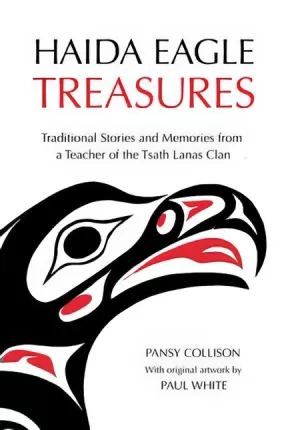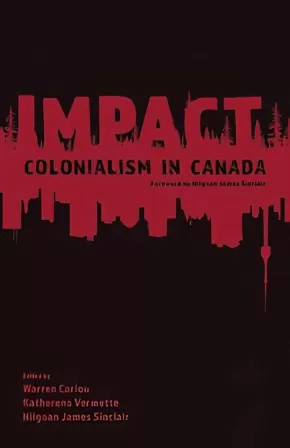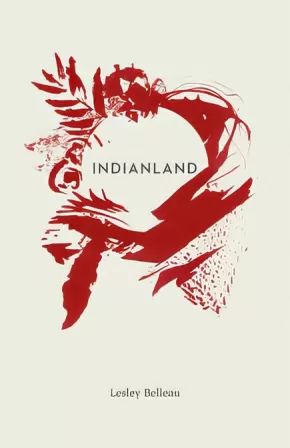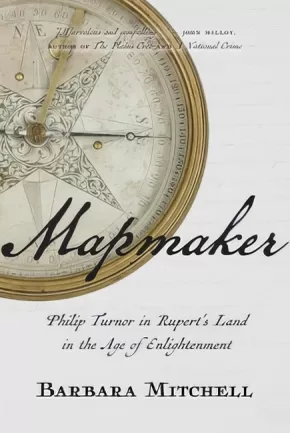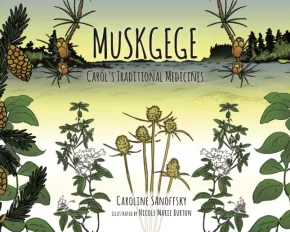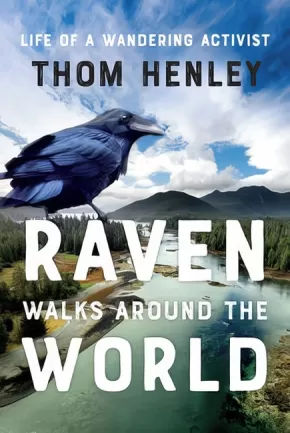
First Nations
586
-
600
of
786 Results;
Sort By
Go To
of 53
Chief Lightning Bolt
$21.00
Format:
Paperback
Text Content Territories:
Indigenous Canadian; First Nations; Mi'kmaq;
Grade Levels: University/College;
ISBN / Barcode: 9781552669693
Synopsis:
Synopsis:
Here is a contemporary Mi’kmaq legend of the life of a great man, who becomes chief, the embodiment of Mi’kmaq values of humility, courage, honour, service and sacrifice of personal gain for the sake of others. He lived a long and storied life, hundreds of years ago, before the arrival of the European scouts and, later, their warships. He was a renowned warrior but, more so, a peacemaker. His people followed him to the point of devotion, yet he was uncannily modest, even embarrassed by his own achievements. He suffered great loss, yet his understanding of his place, his role in a great society, a greater natural world and an inestimable metaphysical world, guided him through his pain.
Mi’kmaq readers may recognize these time-honoured themes based on traditional tales passing values generation to generation. Others will gain a new appreciation for what was lost under colonialism and the attempted genocide of this vibrant, sophisticated and successful culture and society.
With We Were Not the Savages, Daniel Paul changed the way the world understood the history of Eastern Canada and the fully developed civilization that existed before the arrival of the European explorers and settlers, and the nature of the subsequent violent attack on that culture. With Chief Lightning Bolt, Paul shows us exactly what was lost, the beauty of the Mi’kma’ki that once existed, the culture that survived and is only now beginning to recover.
Reviews
“Being with Chief Lightning Bolt from his beginning to the end, is a great way to learn the history of our ancestors. A unique way of teaching about the past. Wela’lin.” — Theresa Muise, author of L’nu’k: The People
“It is incredibly entertaining while gently enlightening modern-day readers about the humane, balanced, honourable, trustworthy, civil and democratic nature of pre-contact Mi’kmaq society.” — Randolph Bowers, author of Sacred Teachings from the Medicine Lodge
Additional Information
288 pages | 6.00" x 9.00"
Chilcotin Chronicles
$26.95
Format:
Paperback
Text Content Territories:
Indigenous Canadian; First Nations; Nuxalk (Bella Coola); Dene; Tsilhqot'in (Chilcotin); Dakelh (Carrier);
Grade Levels: 12; University/College;
ISBN / Barcode: 9781987915334
Synopsis:
Synopsis:
A compilation of stories that meld both culture and bloodlines, Chilcotin Chronicles by Sage Birchwater is set in the wild and untamed country of central British Columbia’s Chilcotin Plateau. West of the Fraser River, this high country is contained by an arc of impenetrable mountain ranges that separates it from the Pacific Coast. The first inhabitants of this region were fiercely independent, molded by the land itself. Those who came later were drawn to this landscape with its mysterious aura of freedom, where time stood still and where a person could find solace in the wilderness and never be found.
Birchwater reaches back to first European contact in British Columbia when the indigenous population spoke forty of Canada’s fifty-four languages and seventy of Canada’s one hundred dialects. The land known today as the Cariboo Chilcotin Coast was already an entity when Alexander Mackenzie arrived in 1793. Bonds of friendship, mutual support and family ties had long been established between the Dakelh, Tsilhqot’in and Nuxalk, giving cohesiveness to the region. Chilcotin Chronicles is about the men and women caught in the interface of cultures and the changing landscape. Indigenous inhabitants and white newcomers brought together by the fur brigades, then later by the gold rush, forged a path together, uncharted and unpredictable. Birchwater discovers that their stories, seemingly disconnected, are intrinsically linked together to create a human ecosystem with very deep roots. The lives of these early inhabitants give substance to the landscape. They give meaning to the people who live there today.
Claiming Anishinaabe: Decolonizing the Human Spirit
$24.95
Format:
Paperback
Text Content Territories:
Indigenous Canadian; First Nations; Anishinaabeg;
Grade Levels: 12; University/College;
ISBN / Barcode: 9780889774919
Synopsis:
Synopsis:
Denied her Indigenous status, Lynn Gehl has been fighting her entire life to reclaim mino-pimadiziwin--the good life. Exploring Anishinaabeg philosophy and Anishinaabeg conceptions of truth, Gehl shows how she came to locate her spirit and decolonize her identity, thereby becoming, in her words, "fully human." Gehl also provides a harsh critique of Canada and takes on important anti-colonial battles, including sex discrimination in the Indian Act and the destruction of sacred places.
Reviews
Gehl is at the cutting edge with her concepts and ideas... She is on a journey and documents it well. — Lorelei Anne Lambert, author of Research for Indigenous Survival
Clear, insightful, and desperately needed... — Lorraine F. Mayer, author of Cries from a Métis Heart
The discussion of the heart and mind knowledge, as well as the discussion on the Anishinaabeg Clan System of Governance, [are] major contributions to the research. — Marlyn Bennett, co-editor of Pushing the Margins
"Throughout Claiming Anishinaabe, the conversation remains rooted in the destructive effects of oppressive power on the human spirit, and an insistence that both knowledge and spirituality are key in reclaiming one’s sense of self." — Quill & Quire
Educator Information
This book would be useful for the following subject areas or courses: Indigenous Studies, Canadian History (Post-Confederation), Social Science, Autobiography/Biography Studies, Spirituality, and Law.
Additional Information
176 pages | 5.50" x 8.50" | Includes line drawings
Daniel Paul: Mi'kmaw Elder
$19.95
Format:
Paperback
Text Content Territories:
Indigenous Canadian; First Nations; Mi'kmaq;
Grade Levels: University/College;
ISBN / Barcode: 9781988286044
Synopsis:
Synopsis:
Born in a log cabin during a raging blizzard on Indian Brook Reserve in 1938, Mi'kmaw elder Daniel N. Paul rose to the top of a Canadian society that denied his people's civilization. When he was named to the Order of Canada, his citation called him a "powerful and passionate advocate for social justice and the eradication of racial discrimination." His Order of Nova Scotia honour said he "gives a voice to his people by revealing a past that the standard histories have chosen to ignore."
But long before the acclaim, there was the Indian Agent denying food to his begging mother. There was the education system that taught him his people were savages. There was the Department of Indian Affairs that frustrated his work to bring justice to his people.
His landmark book We Were Not the Savages exposed the brutalities of the collision between European and Native American civilizations from a Mi'kmaq perspective. The book sold tens of thousands of copies around the world and inspired others to learn history from an indigenous point of view.
He shone a light on Halifax founder Edward Cornwallis through newspaper columns and public debates over two decades, calling on Nova Scotia to stop honouring the man whose scalping proclamations were an act of genocide against the Mi'kmaq.
Now, for the first time, here is the full story of his personal journey of transformation, a story that will inspire Canadians to recognize and respect their First Nations as equal and enlightened civilizations.
downstream: reimagining water
$36.99
Format:
Paperback
Text Content Territories:
Indigenous Canadian;
ISBN / Barcode: 9781771122139
Synopsis:
Synopsis:
downstream: reimagining water brings together artists, writers, scientists, scholars, environmentalists, and activists who understand that our shared human need for clean water is crucial to building peace and good relationships with one another and the planet. This book explores the key roles that culture, arts, and the humanities play in supporting healthy water-based ecology and provides local, global, and Indigenous perspectives on water that help to guide our societies in a time of global warming. The contributions range from practical to visionary, and each of the four sections closes with a poem to encourage personal freedom along with collective care.
This book contributes to the formation of an intergenerational, culturally inclusive, participatory water ethic. Such an ethic arises from intellectual courage, spiritual responsibilities, practical knowledge, and deep appreciation for human dependence on water for a meaningful quality of life. downstream illuminates how water teaches us interdependence with other humans and living creatures, both near and far.
Reviews
"Downstream stakes out a bold and creative claim to collaborative and cross-cultural eco-spiritual-neo-traditional knowing and, with it, new approaches to policy and action. A timely read that lends depth and resonance to some of the material and voices [in other books on the subject]." — Heather Menzies, Literary Review of Canada, June 2017
"This rich collection brings together the work of artists, writers, scientists, scholars, environmentalists, and activists, all focusing on the looming global water crisis. ... Writing styles vary from piece to piece throughout the book—poetic, personal, journalistic, and academic—but the shifts between each are well worth navigating for any reader interested in human futures on Earth."— Publishers Weekly, August 2017
"This collection of works successfully expands our knowledge of and experience with water by merging natural science, social science, arts, and humanities approaches to water. It offers new, innovative, and engaging ways to think about and experience water, especially as it relates to life and vitality."— Sara Beth Keough, American Review of Canadian Studies, November -0001
Educator Information
This collection of essays is useful for these course/subject areas or topics: Language Arts & Disciplines; Creative Writing; Indigenous Studies; Poetry; Environmental Studies; Environmental Humanities.
Table of Contents
Introduction: Re-storying Waters, Re-storying Relations / Rita Wong and Dorothy Christian
Part I: Contexts for Knowing and Unknowing Water
1. Planetary Distress Signals / Alanna Mitchell
2. Water / Lee Maracle
3. Interweaving Water: The Incremental Transformation of Sovereign Knowledge into Collaborative Knowledge / Michael D. Blackstock
4. Water and Knowledge / Astrida Neimanis
5. Excerpts from “a child’s fable” / Baco Ohama
Part II: Water Testimonies: Witness, Worry, and Work
6. Water: The First Foundation of Life / Mona Polacca
7. From Our Homelands to the Tar Sands / Melina Laboucan Massimo
8. Keepers of the Water: Nishnaabe-kwewag Speaking for the Water / Renee Elizabeth Mzinegiizhigo-kwe Bedard
9. Water Walk Pedagogy / Violet Caibaiosai
10. A Response to Pascua Lama / Cecilia Vicuna
Part III: Shared Ethical and Embodied Practices
11. Moving with Water: Relationship and Responsibilities / Alannah Young Leon and Denise Marie Nadeau
12. Bodies of Water: Meaning in Movement / Seonagh Odhiambo Horne
13. Upstream: A Conversation with Water / Cathy Stubington
14. Ice Receding, Books Reseeding / Basia Irland
15. Tsunami Chant / Wang Ping
Part IV: A Respectful Co-existence in Common: Water Perspectives
16. Listening to the Elders at the Keepers of the Water Gathering /Radha D’Souza
17. Coastal Waters in Distress from Excessive Nutrients / Paul J. Harrison
18. Bodies of Water: Asian Canadians In/Action with Water /Janey Lew
19. Permeable Toronto: A Hydro-Eutopia / Janine MacLeod
20. Saturate/Dissolve: Water for Itself, Un-Settler Responsibilities, and Radical Humility / Larissa Lai
21. Bring Me Back / Janet Rogers
Additional Information
300 pages | 6.00" x 9.00"
Essential Song: Three Decades of Northern Cree Music
$39.99
Format:
Paperback
Text Content Territories:
Indigenous Canadian; First Nations; Cree (Nehiyawak);
Grade Levels: University/College;
ISBN / Barcode: 9781554586134
Synopsis:
Synopsis:
Essential Song: Three Decades of Northern Cree Music, a study of subarctic Cree hunting songs, is the first detailed ethnomusicology of the northern Cree of Quebec and Manitoba. The result of more than two decades spent in the North learning from the Cree, Lynn Whidden’s account discusses the tradition of the hunting songs, their meanings and origins, and their importance to the hunt. She also examines women’s songs, and traces the impact of social change—including the introduction of hymns, Gospel tunes, and country music—on the song traditions of these communities.
The book also explores the introduction of powwow song into the subarctic and the Crees struggle to maintain their Aboriginal heritage—to find a kind of song that, like the hunting songs, can serve as a spiritual guide and force.
Including profiles of the hunters and their songs and accompanied (online) by original audio tracks of more than fifty Cree hunting songs, Essential Song makes an important contribution to ethnomusicology, social history, and Aboriginal studies.
Awards
- ForeWord Magazine Book of the Year Award, Bronze Pize, Music Category
Educator Information
Audio files available on Soundcloud: https://soundcloud.com/user-276681310/sets/essential-song-three-decades.
Additional Information
192 pages | 6.00" x 9.00"
Everyday Exposure: Indigenous Mobilization and Environmental Justice in Canada's Chemical Valley
$32.95
Format:
Paperback
Text Content Territories:
Indigenous Canadian; First Nations; Anishinaabeg; Ojibway;
ISBN / Barcode: 9780774832649
Synopsis:
Synopsis:
Surrounded by Canada’s densest concentration of chemical manufacturing plants, members of the Aamjiwnaang First Nation express concern about a declining male birth rate and high incidences of miscarriage, asthma, cancer, and cardiovascular illness. Everyday Exposure uncovers the systemic injustices they face as they fight for environmental justice. Exploring the problems that conflicting levels of jurisdiction pose for the creation of effective policy, analyzing clashes between Indigenous and scientific knowledge, and documenting the experiences of Aamjiwnaang residents as they navigate their toxic environment, this book argues that social and political change requires a transformative “sensing policy” approach, one that takes the voices of Indigenous citizens seriously.
Educator Information
This book would be useful for courses in Environmental Studies, Science, Social Justice, and Social Studies.
Additional Information
280 pages | 6.00" x 9.00"
Haida Eagle Treasures: Traditional Stories and Memories from a Teacher of the Tsath Lanas Clan
$24.95
Artists:
Format:
Paperback
Text Content Territories:
Indigenous Canadian; First Nations; Haida; Eagle Clan (Ts'aahl);
ISBN / Barcode: 9781550597486
Synopsis:
Synopsis:
Take a journey into the heart of Haida culture as it is lived and experienced by an extraordinary woman of the Tsath Lanas Eagle Clan. Pansy Collison, a Haida woman born and raised in Old Massett on Haida Gwaii, tells stories of her clan and community, as well as personal narratives about her history and family. Haida Eagle Treasures embodies a strong Haida woman’s voice, offering a rare glimpse inside Haida culture. Each story and memory is a treasure that captures part of the beauty of the Haida worldview and way of life.
Now retired, Pansy taught for 23 years at elementary, secondary, and college levels. From these experiences, she describes some of the challenges and contradictions of living between two worlds. Pansy’s teaching skills, artistic talents, and political affiliations keep her involved in politics and education on Haida Gwaii.
Thirteen original illustrations by Pansy’s brother, Paul White, a gifted artist, teacher, pole carver and designer, provide the guideposts within Haida Eagle Treasures.
Educator Information
Recommended in the Canadian Indigenous Books for Schools 2019-2020 resource list as being useful for grades 8-12 for English Language Arts and Social Studies.
Caution: use of the term "Native" throughout.
Additional Information
244 pages | 6.00" x 9.00" | 2nd Edition
Impact: Colonialism in Canada
$12.00
Format:
Paperback
Text Content Territories:
Indigenous Canadian;
Grade Levels: 12; University/College;
ISBN / Barcode: 9781927849293
Synopsis:
Synopsis:
A collection of fiction, poetry, essays and creative non-fiction, this anthology features works by over 20 Indigenous Canadian writers. The book focuses on the effects of colonialism in Canada from both historical and contemporary perspectives.
"These stories are rich in geographies Indigenous peoples journey through today; on streets, in cities, and into the future. These stories will make you think, cry, and heal." —Niigaanwewidam James Sinclair, Editor
Reviews
"Impact: Colonialism in Canada presents writings that are often challenging, thought-provoking, and at times, gut-wrenching. The collection is a testament to strength and resiliency and the potential for healing, both within the Indigenous and non-Indigenous communities. But, it is not easy reading; it demands considerable insight, open-mindedness, and an understanding of an historical concept (i.e. colonialism), all of which point to the book’s being read and/or studied by students in the upper grades of high school. It’s certainly a work that would be a fine reference in a high school library collection, and teachers would find it to be an excellent supplemental text for the study of Aboriginal writers, as well as Canadian history, particularly as a reflection of the impact of colonialism upon Canada’s Indigenous peoples. Highly Recommended." - Joanne Peters, CM Magazine
Educator Information
Recommended for ages 17+
Additional Information
198 pages | 5.50" x 8.50"
Indianland
$18.95
Format:
Paperback
Text Content Territories:
Indigenous Canadian; First Nations; Anishinaabeg; Ojibway;
ISBN / Barcode: 9781894037921
Synopsis:
Synopsis:
Indianland is a rich and varied poetry collection. The poems are written from a female and Indigenous point of view and incorporate Anishinaabemowin throughout. Time is cyclical, moving from present-day back to first contact and forward again. Themes of sexuality, birth, memory, and longing are explored, images of blood, plants (milkweed, yarrow, cattails), and petroglyphs reoccur, and touchstone issues in Indigenous politics are addressed (Elijah Harper, Murdered and Missing Indigenous Women, forced sterilizations, Oka).
Educator Information
Recommended in the Canadian Indigenous Books for Schools 2019-2020 resource list as being useful for grades 11 and 12 for these subjects: English Language Arts, Media Studies, and Social Studies.
This work includes sexual content, references to rape, and mature content.
Additional Information
80 pages | 5.50" x 8.50"
Indigenous Business in Canada: Principles and Practices
$34.95
Editors:
Format:
Paperback
Grade Levels: University/College;
ISBN / Barcode: 9781771085908
Synopsis:
Synopsis:
Students who study business in university are not likely to hear about or discuss examples of Indigenous business successes from across the country. Rarely would one see references to Aboriginal communities, let alone examples of them growing multi-million dollar businesses and partnering to lead innovative economic development projects that positively impact the national economy. Resources are scarce and inadequate, an oversight that is to our detriment.
Somewhere between a textbook and a book of collected essays, this collection of articles is an effort to build on and share the research of Aboriginal practitioners and scholars working in their respective fields. Where possible we share not only concepts, but also the voices of Aboriginal leaders, officials, Elders and other members of Aboriginal communities.
Indigenous Business in Canada addresses contemporary concerns and issues in the doing of Indigenous business in Canada, reveals some of the challenges and diverse approaches to business in Aboriginal contexts from coast to coast to coast, and demonstrates the direct impact that history and policy, past and present, have on business and business education.
Reviews
“Indigenous Business in Canada: Principles and Practices should serve as a conscious raiser for business education students and professionals working in housing, business, banking and other economic-development industries and support their ability to adapt to the growing importance of Aboriginal communities and business to the global economy.” -- Nelson & Waugh, Canadian Journal of Education, 2016
Educator Information
This textbook would be useful for courses in Business & Economics, Economic Development, Government & Business, and Indigenous Studies.
Additional Information
312 pages | 7.50" x 9.00
Edited by Keith G. Brown, Mary Beth Doucette, and Janice Esther Tulk.
Making Space for Indigenous Feminism - 2nd Edition
$35.00
Editors:
Format:
Paperback
Text Content Territories:
Indigenous;
Grade Levels: 12; University/College;
ISBN / Barcode: 9781552668832
Synopsis:
Synopsis:
The first edition of Making Space for Indigenous Feminism proposed that Indigenous feminism was a valid and indeed essential theoretical and activist position, and introduced a roster of important Indigenous feminist contributors. This new edition builds on the success and research of the first and provides updated and new chapters that cover a wide range of some of the most important issues facing Indigenous peoples today: violence against women, recovery of Indigenous self-determination, racism, misogyny and decolonization. Specifically, new chapters deal with Indigenous resurgence, feminism amongst the Sami and in Aboriginal Australia, neoliberal restructuring in Oaxaca, Canada’s settler racism and sexism, and missing and murdered Indigenous women and girls in Canada.
Written by Indigenous feminists and allies, this book provides a powerful and original intellectual and political contribution demonstrating that feminism has much to offer Indigenous women, and all Indigenous peoples, in their struggles against oppression.
Reviews
“Making Space for Indigenous Feminism is an essential resource that places gender justice at the core of our analyses of colonization and decolonization. What we learn is urgent: without addressing the systemic and symbolic character of the gendered violence that Indigenous women, girls, two-spirit, trans, and queer folks disproportionately face, decolonization will remain a man-made, colonial sham.” — Glen Coulthard, First Nations and Indigenous Studies, UBC
“This path-breaking collection brings together leading and emerging voices in the field, presenting critical innovative research that reminds us of the need for a consistent application of feminist analytic tools to understand colonialism and patriarchy as mutually constitutive and reinforcing forces. This collection is essential as an emancipatory tool for decolonization and Indigenous resurgence.” — Heidi Kiiwetinepinesiik Stark, University of Victoria
Additional Information
256 pages | 6.00" x 9.00"
Mapmaker: Philip Turnor in Rupert's Land in the Age of Enlightenment
$39.95
Format:
Hardcover
Text Content Territories:
Indigenous Canadian; First Nations; Cree (Nehiyawak);
Grade Levels: University/College;
ISBN / Barcode: 9780889775039
Synopsis:
Synopsis:
"[M]arvelous and compelling..." - John Milloy, author of The Plains Cree and A National Crime
As the first inland surveyor for the Hudson's Bay Company, Philip Turnor stands tall among the explorers and mapmakers of Canada. Accompanied by Cree guides and his Cree wife, Turnor travelled 15,000 miles by canoe and foot between 1778 and 1792 to produce ten maps, culminating in his magnum opus, a map that was the foundation of all northern geographic knowledge at that time. Barbara Mitchell's biography brings to life the man who taught David Thompson and Peter Fidler how to survey. In her search for Turnor's story, Mitchell discovers her own Cree-Orkney ancestry and that of thousands of others who are descendents of Turnor and his Cree wife.
Reviews
"Mitchell's work adds substantially to a deeper knowledge of Turnor, his life, his work, and to the extent possible, his character. It provides the first close study of his background, writings, career trajectory, and contributions to the mapping of North America." - Jennifer Brown, author of Strangers in Blood: Fur Trade Company Families in Indian Country
"Where books on Canada, indigenous life, exploration, or genealogy are favorites, this historical account is a must." - Henrietta Verma, Library Journal
"Mitchell shows the human side of map-making through reconstructions of Turnor's daily life ... The result is a wonderfully detailed and convincing portrait of early Canadian life in the era of Indigenous-European trade." - Lyle Dick, Canada's History
"Since the research material informing this biography was framed through the sensibilities of an eighteenth-century Englishman, there is very little reference to Turnor’s Cree wife. Mitchell, having only recently discovered her own Cree roots, is also unable to supply that Indigenous perspective in her journals. Her narrative ends with the appreciation that her lifelong self-identification as a British Canadian performs over her newer realization that she is also Cree. In her epilogue and her acknowledgements, she reaches out to her Cree heritage, stating simply, “I am listening.” - Beverley Haun, Canadian Literature: A Quarterly of Criticism and Review
Additional Information
352 pages | 6.25" x 9.25"
Muskgege – Carol’s Traditional Medicines
$16.95
Artists:
Format:
Paperback
Text Content Territories:
Indigenous Canadian; First Nations; Cree (Nehiyawak);
ISBN / Barcode: 9781927849378
Synopsis:
Synopsis:
“We are all visitors to this land, our land has so much to offer, our land is overflowing with the medicines our bodies need, but we are only passing through. With respect, our purpose is to watch, to learn, to grow, to love, to teach. Then we will return home.” – Caroline Sanoffsky
Muskgege is a written record of traditional knowledge, passed down through the generations. It features descriptions and illustrations of 36 wild plants that can be used to make medicines. It is a beautiful and compelling reminder of the important role nature plays in First Nations culture.
Educator Information
Grades 6 and under.
Raven Walks Around the World: Life of a Wandering Activist
$32.95
Format:
Hardcover
Text Content Territories:
Indigenous Canadian; First Nations; Haida;
ISBN / Barcode: 9781550178074
Synopsis:
Synopsis:
In 1970, twenty-two-year-old Thom Henley left Michigan and drifted around the northwest coast, getting by on odd jobs and advice from even odder characters. He rode the rails, built a squatter shack on a beach, came to be known as "Huckleberry" and embarked on adventures along the West Coast and abroad that, just like his Mark Twain namesake, situated him in all the right and wrong places at all the right and wrong times. Eventually, a hippie named Stormy directed him to Haida Gwaii where, upon arrival, a Haida Elder affirmed to the perplexed Huckleberry that she had been expecting him. From that point onward, Henley's life unfolded as if destiny were at work--perhaps with a little help from Raven, the legendary trickster.
While kayaking the remote area around South Moresby Island, Henley was struck by the clear-cut logging and desecration of ancient Haida village sites. Henley collaborated with the Haida for the next fourteen years to spearhead the largest environmental campaign in Canadian history and the creation of Gwaii Haanas National Park. Later, he became a co-founder of Rediscovery--a wilderness program for First Nations and non-aboriginal youth that would become a global model for reconciliation.
Henley's story is peppered with a cast of unlikely characters serendipitously drawn together, such as the time he hosted then-Prime Minister Pierre Elliott Trudeau and entourage, including five-year-old Justin Trudeau, at his remote driftwood hippie hut (the visit was unanticipated and at the time the helicopter touched down, Henley and a friend were doing laundry). Over and over, Henley found himself at the epicentre of significant events that included a historic train caravan across Canada, an epic Haida canoe voyage, an indigenous rights campaign world tour for the Penan tribespeople of Borneo, as well as two global disasters--the 2004 South Asian tsunami and the 2015 Nepal earthquake.
Beautifully recounted with passion, humour and humility, Raven Walks around the World is a moving and thoughtful account of a life lived in harmony with the land and community.
Educator Information
Recommended resource for grades 10-12 for these subject areas: Contemporary Indigenous Studies, English Studies, Environmental Science, Literary Studies, BC First Peoples
Additional Information
272 pages | 6.00" x 9.00"
Sort By
Go To
of 53

